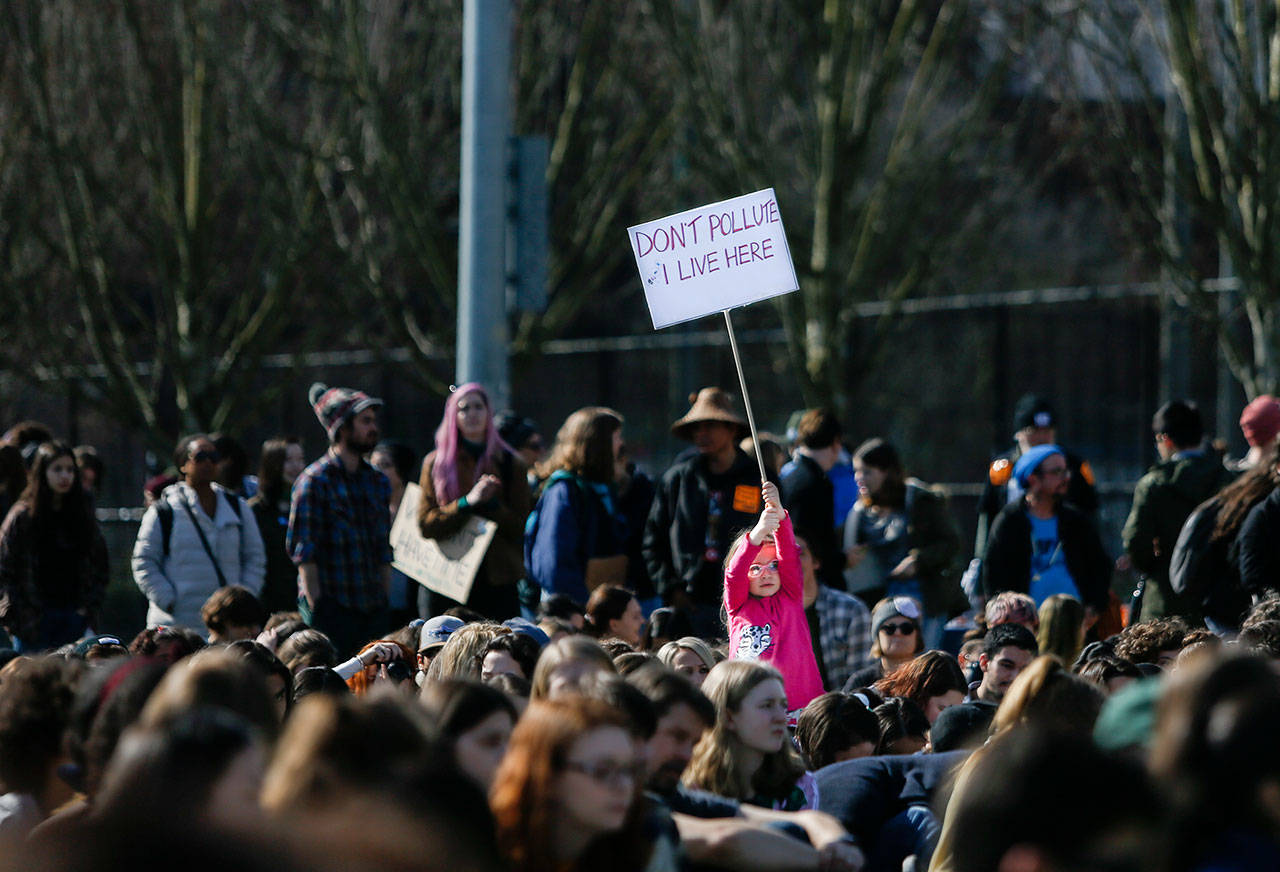King County is developing a new five-year climate action plan that centers on environmental justice and explores ways to protect communities of color and low-income households from the effects of climate change.
The county’s current climate action plan was adopted in 2015 and has provided a blueprint for reducing emissions and preparing for climate change. It has focused both on county government operations as well as community-wide goals. King County reports its operations account for less than 2% of greenhouse gas emissions, which means the county needs to work with partner cities and residents to meet its goal of reducing emissions by 80% countywide by 2050 compared to a 2007 baseline.
Dr. Jeff Duchin is a county public health officer who presented at a Nov. 21 Board of Health meeting. He outlined ways climate change could affect health locally.
“The health impacts of climate change are considered a health emergency, and yet greenhouse gas emissions are rapidly rising,” Duchin said.
Already, he said it’s estimated that 1,100 people die each year in Washington state because of outdoor air pollution. In 2018, the Seattle area had some of the dirtiest air in the world, worse than Beijing on at least multiple days because of wildfire smoke.
Pollen will likely be worse, aggravating allergies as seasons grow longer while dirty air causes plants to release more pollen. Extreme heat can exacerbate heart and liver conditions, among others. In King County, increased heat is associated with more hospital admissions and higher mortality rates.
Diseases are also on the rise, with documented cases of valley fever — a deadly fungal infection spread through dust — reaching southwest Washington in recent years. It has historically been seen in the American Southwest, but is moving northward.
While progress has been slow in reducing emissions, there are some bright spots. The county worked with Puget Sound Energy to create a renewable purchasing option, and the county will be shifting nearly all of its energy consumption to that. Eight cities have done the same. The state Legislature also passed a goal of reaching 100% carbon-neutral energy in its electric grid by 2045.
But climate change effects are already here, and will keep getting worse in the coming decades. Communities of color, immigrants and low-income households are generally less able to respond to health threats than more affluent residents. It can manifest in everything from a family not being able to buy smoke-filtering masks, to not being able to afford food as droughts or pests drive prices up.
Many of the problems that will be increased by climate change are already affecting people, said Jamie Stroble, the county’s climate engagement specialist. Climate change is a threat multiplier, meaning it makes existing inequities worse, Stroble said.
Nancy Huizar with Got Green, a community organization focusing on communities of color in south Seattle and King County, said even now accessing healthy food is difficult for many people. Over the past decade, housing and displacement have also affected communities that are served by Got Green.
“We’re seeing again that folks who don’t have affordable housing in areas that are near grocery stores and things like that, or access to transportation, then there’s a lack of being able to get food for themselves,” Huizar said.
Part of the problem, said Vera Hoang, also of Got Green, is that people of color make up only around 16% of workers in environmental sectors. With climate change increasing inequalities, people of color stand to be some of the most negatively effected populations.
“It’s just really hard for us to break into the sector and stay in the sector,” Hoang said. “We’re really missing out on the expertise of leaders who are closest to the issue.”
Related to health care in particular, many hospitals don’t have interpreters on staff, said Sameth Mell, director of the Mt. Baker Hub Alliance. This means that some health care clinics are forced to turn away people when there aren’t interpreters, and people are directed to Harborview Medical Center.
Climate change is also likely to increase refugees fleeing natural disasters and conflicts made worse by a warmer world. Governments are currently under-prepared to address this, said Nourah Yonous, founder of the African Women’s Business Alliance.
Minority-owned businesses are more vulnerable already due to the pressures of gentrification. This could be exacerbated by climate-related stresses. Yonous sees many issues as connected.
Yonous gave the example of a black mother who may have a child losing school time because of asthma — a condition aggrevated by pollution. The family could struggle because of gender inequality, increasing food insecurity and economic injustice and housing pressures and higher power bills. Climate change will likely affect all of these.
“For that reason, I think it’s very important for us to know that these issues are connected,” Yonous said.


